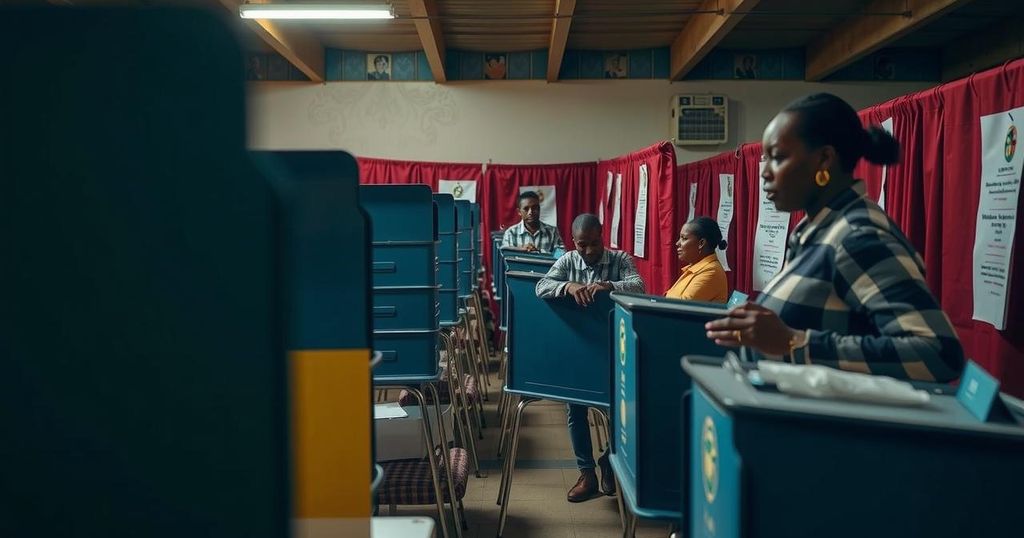Namibia Extends Election Voting Amid Technical Issues and Opposition Claims
Namibia has extended its election voting period due to ballot paper shortages, prompting allegations of fraud from the opposition. Voters, especially in remote areas, have faced significant difficulties casting their ballots, raising concerns about logistics and transparency in the electoral process. As Netumbo Nandi-Ndaitwah aims for the presidency amidst public frustrations over unemployment and economic inequality, the elections could result in a significant political shift.
Namibia has prolonged its election voting period following technical difficulties, particularly shortages of ballot papers, leading to claims of electoral fraud by the opposition. The electoral authority announced that polling stations, originally set to close on Wednesday, would now remain open until Saturday night in light of logistical challenges. Despite assurances from electoral officials regarding the arrival of ballot papers, many polling stations, particularly in remote areas, are still awaiting deliveries, leaving numerous citizens unable to cast their votes. There exists considerable frustration among voters, many of whom have queuing for multiple days without being able to participate in the election process.
Netumbo Nandi-Ndaitwah, the vice president and the ruling South West Africa People’s Organization (SWAPO) candidate, seeks to become Namibia’s first female president in a country rich in minerals but facing significant economic challenges. The discontent is palpable among the nation’s youth, who are increasingly frustrated with the lack of job opportunities despite Namibia’s classification as an upper middle-income country. Historically, Namibia has been viewed as a stable democracy in a region where political transitions often entail turmoil and disputes over election results. However, dissatisfaction with the current government could indicate a potential shift in voter sentiment in the upcoming elections.
Namibia, a former German colony and a nation that gained independence from South Africa in 1990, has been predominantly governed by SWAPO since the end of apartheid. Although previous elections have been considered credible, systemic issues such as unemployment and economic inequalities have begun to stir discontent, especially among the younger population. With approximately 1.4 million registered voters, the country’s election is critical in determining not only the next president but also the composition of the parliament. The current electoral crisis bears similarities to unrest in neighboring Mozambique, raising questions about the integrity of Namibia’s electoral process and governance.
Namibia’s decision to extend the voting period amidst logistical challenges and allegations of fraud has opened up significant concerns regarding electoral integrity. The opposition’s claims and the logistical mishaps could undermine public confidence in the electoral system. With young voters voicing their frustrations over economic conditions and opportunities, the upcoming elections could mark a pivotal moment for the nation’s political landscape, potentially leading to a demand for transformative change in governance.
Original Source: apnews.com




Post Comment